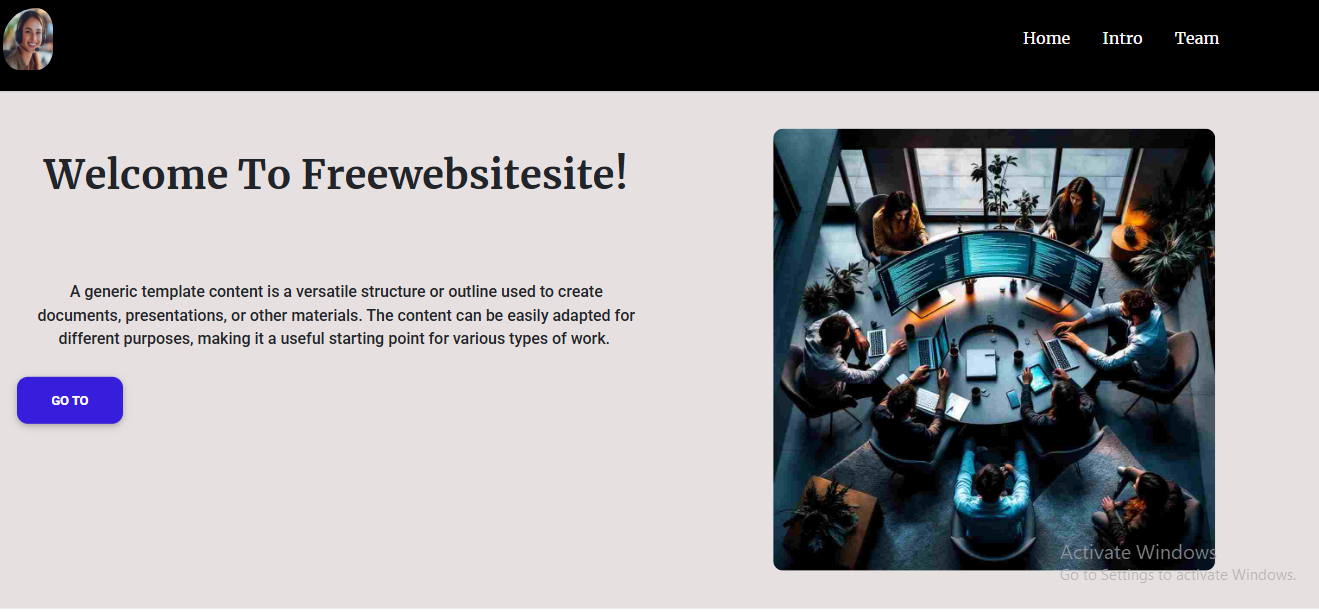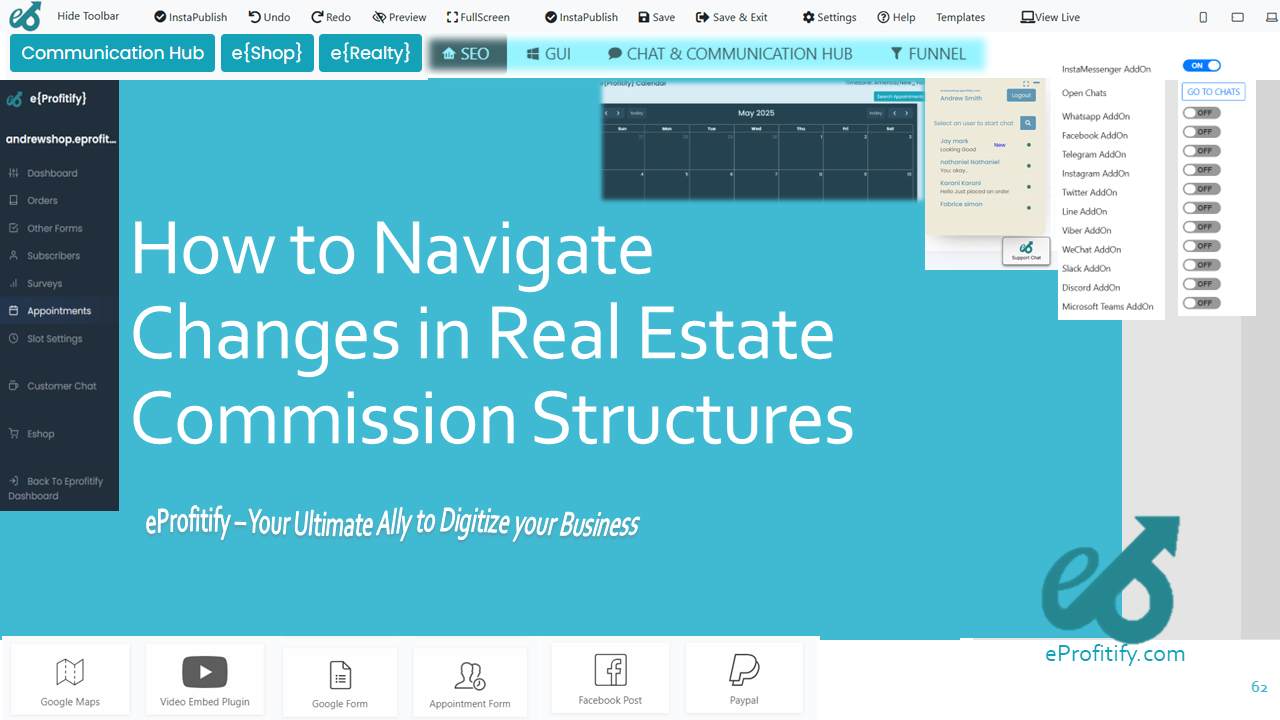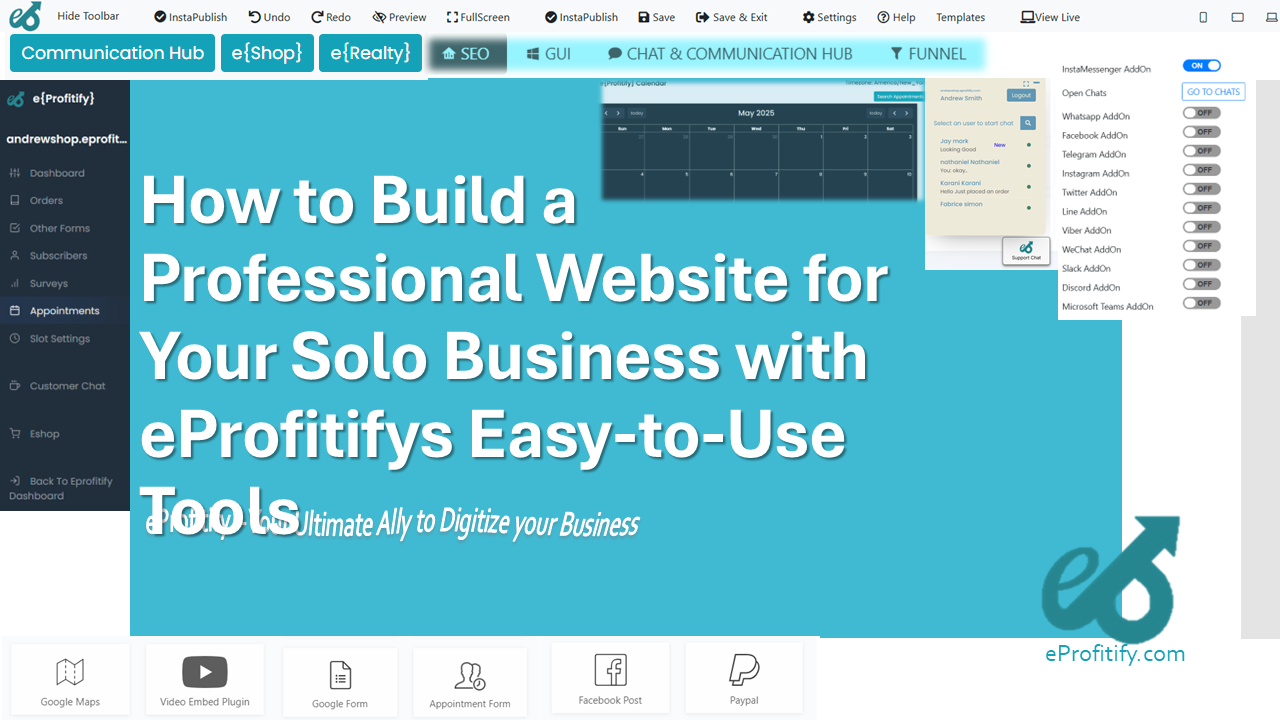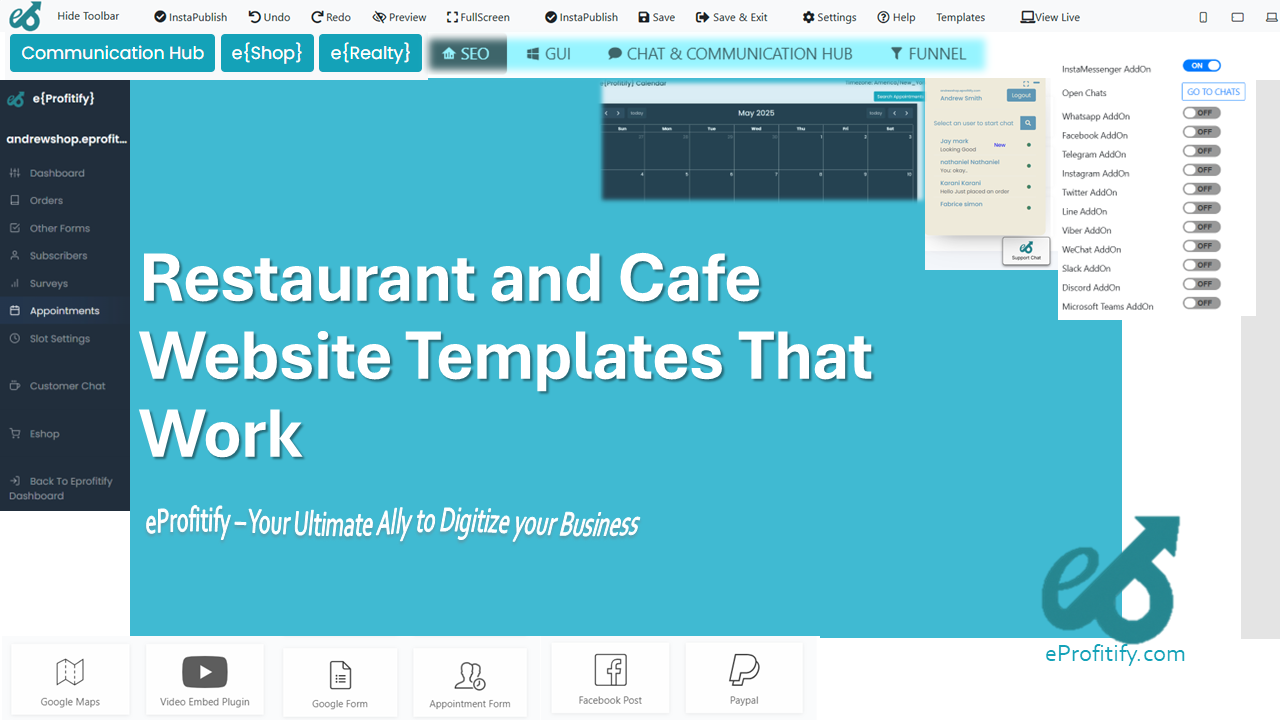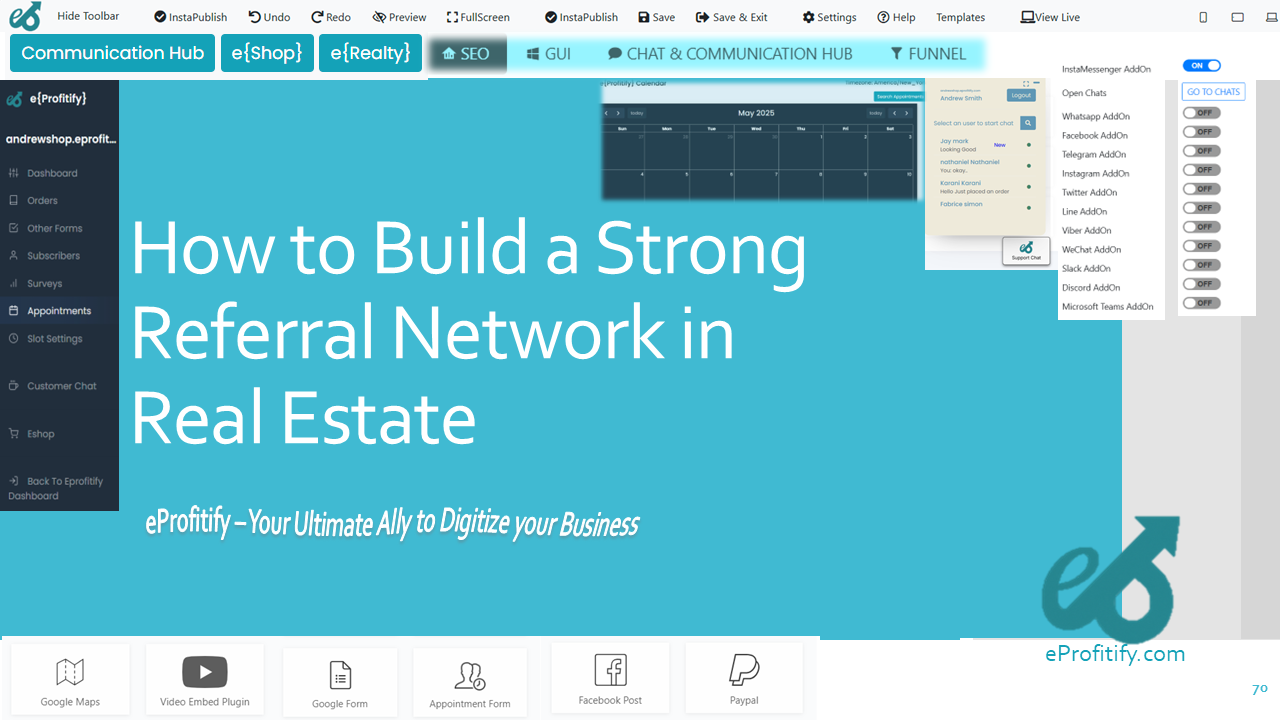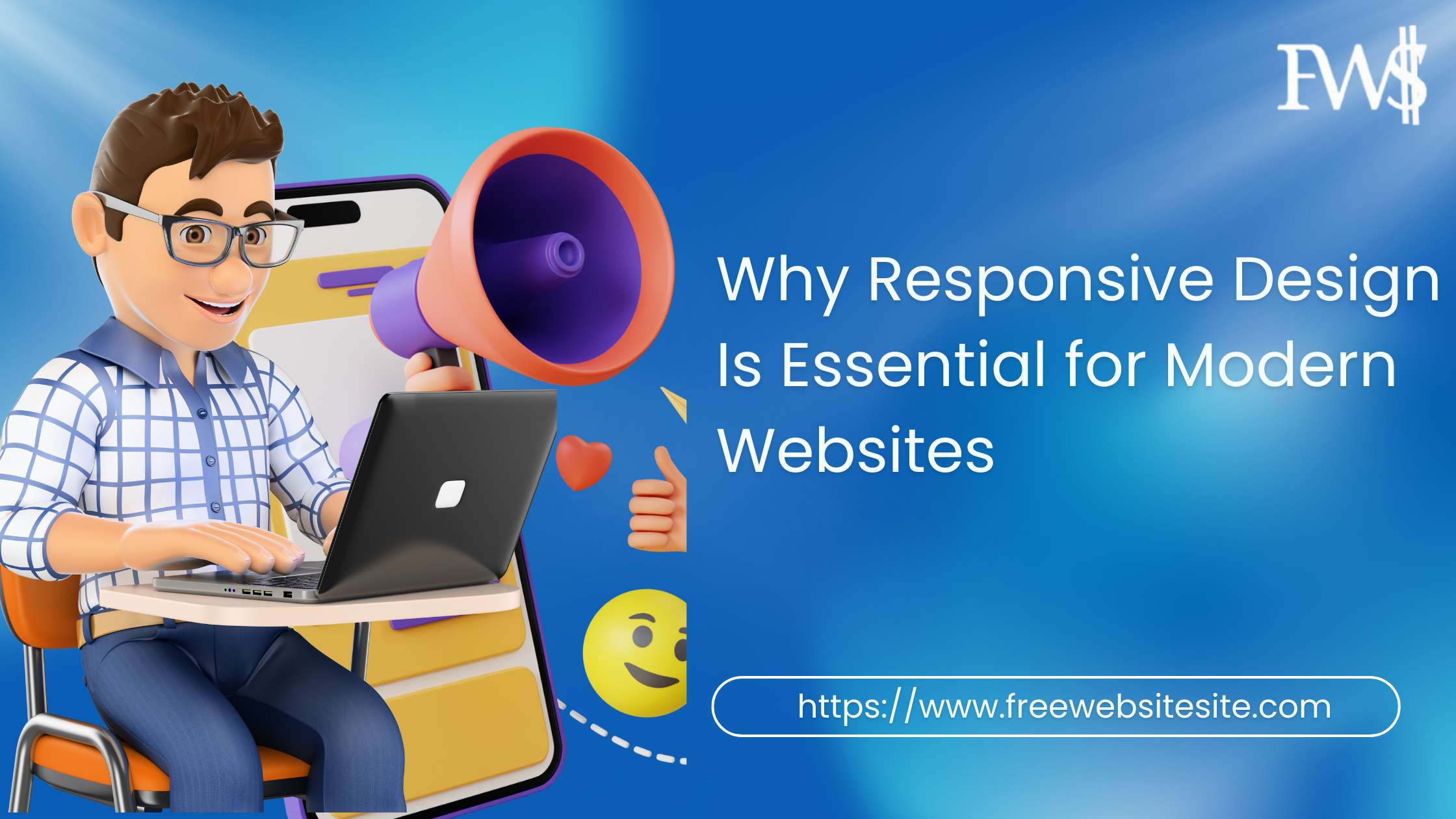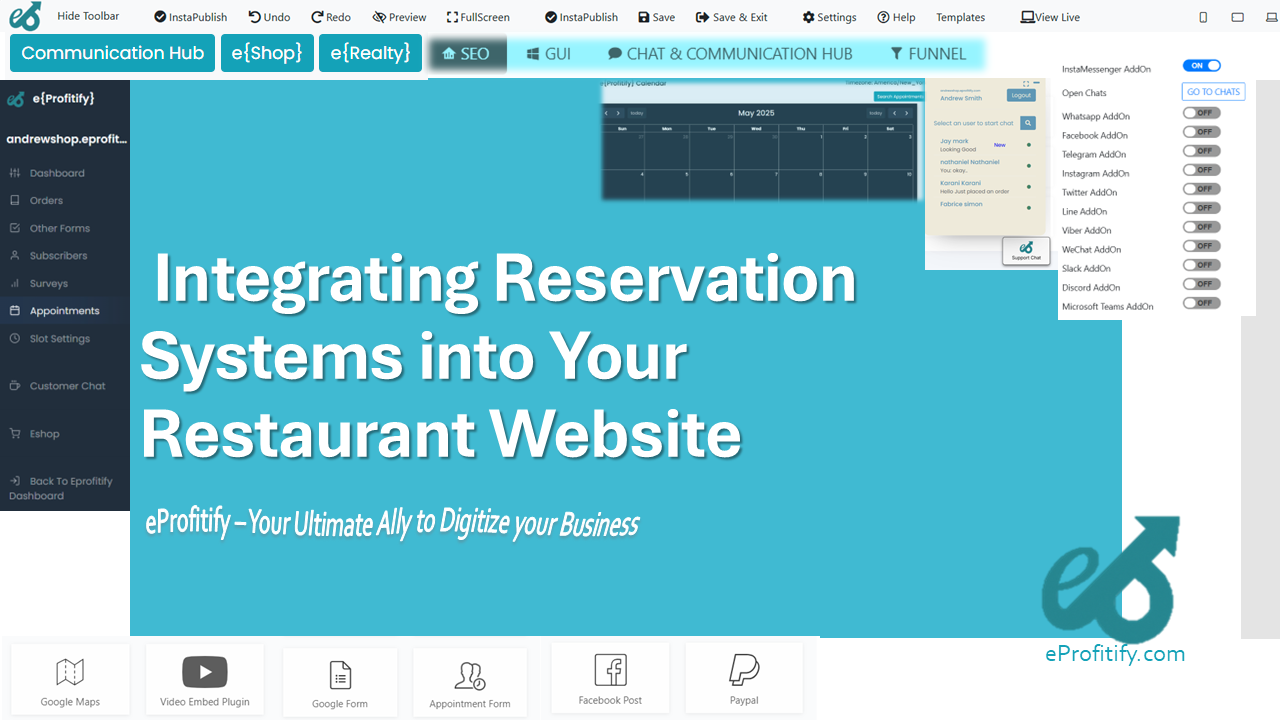Utilizing Client Relationship Management Tools Effectively
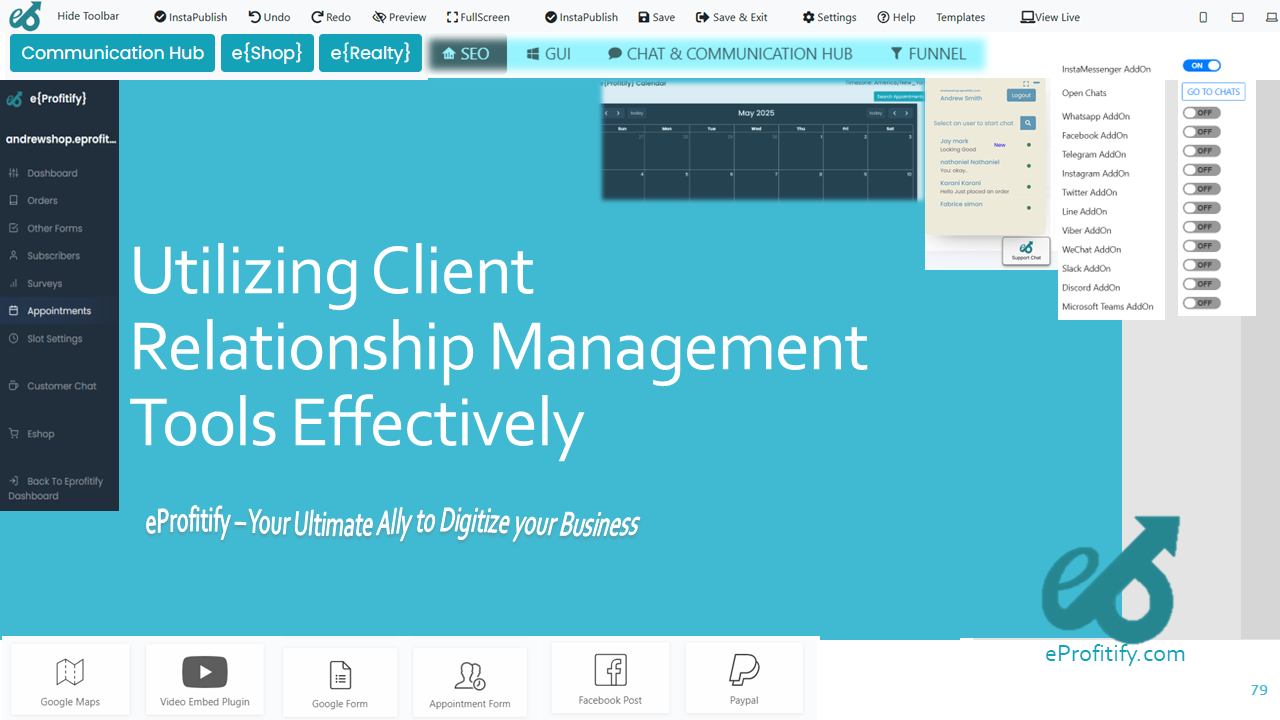
Utilizing Client Relationship Management (CRM) Tools Effectively
In today’s hyper-competitive business landscape, fostering strong customer relationships is no longer optional—it’s essential. Client Relationship Management (CRM) tools have emerged as the backbone of modern customer engagement strategies, helping businesses streamline communication, automate workflows, and analyze data to drive growth. When utilized effectively, CRM systems can transform how companies interact with clients, leading to higher retention rates, improved sales performance, and sustainable profitability. This article explores best practices for maximizing CRM tools, supported by industry statistics, and highlights how platforms like eprofitify—a leading website publishing and management tool—are revolutionizing CRM with innovative features such as instant messaging, appointment management, ecommerce integration, and more.
The Growing Importance of CRM Tools
CRM systems are integral to businesses of all sizes. According to Grand View Research, the global CRM market was valued at $58.82 billion in 2022 and is projected to grow at a compound annual growth rate (CAGR) of 13.9% through 2030. This surge reflects the growing recognition of CRM tools as critical drivers of revenue and customer satisfaction. For instance, Salesforce’s 2023 State of Sales Report found that businesses adopting CRM systems increased sales by an average of 29%, while Nucleus Research revealed a staggering $8.71 return for every $1 spent on CRM technology.
These tools empower teams to centralize customer data, track interactions, and automate repetitive tasks, enabling businesses to deliver personalized experiences at scale. However, their effectiveness hinges on strategic implementation.
Key Features of Effective CRM Systems
To unlock the full potential of CRM tools, businesses must prioritize features that enhance efficiency, collaboration, and scalability. Below are core components of modern CRM systems and how they drive success:
-
Integration with Business Tools
Siloed systems lead to fragmented customer experiences. Effective CRM platforms integrate seamlessly with email, social media, ecommerce platforms, and analytics tools. For example, CRM integration with ecommerce systems allows businesses to track purchase histories and recommend products proactively. According to HubSpot, companies using integrated CRM solutions report a 32% increase in revenue due to improved data accessibility.eprofitify excels here by combining CRM with website publishing, ecommerce, and instant messaging, ensuring all customer interactions—from live chats to sales transactions—are tracked in one unified dashboard.
-
Automation Capabilities
Automation reduces manual effort while minimizing errors. Features like automated email campaigns, lead scoring, and appointment reminders save teams an average of 6 hours per week per employee (Salesforce). By automating follow-ups and nurturing leads, businesses can focus on high-value tasks.eprofitify’s appointment management system automates scheduling and sends reminders, reducing no-shows by up to 40%, while its CRM workflows trigger personalized messages based on user behavior.
-
Data Analytics and Reporting
Data-driven insights are the cornerstone of effective decision-making. CRM systems with advanced analytics help businesses identify trends, forecast sales, and measure campaign performance. Forbes notes that organizations leveraging CRM analytics achieve 3x higher ROI compared to those that don’t.eprofitify offers customizable dashboards that track metrics like customer engagement, conversion rates, and sales pipelines, empowering teams to refine strategies in real time.
-
Personalization at Scale
A Salesforce study found that 72% of customers expect businesses to understand their unique needs. Modern CRMs segment audiences, deliver tailored content, and create individualized buying journeys.With eprofitify, businesses can segment customers based on purchase history or interaction patterns and deploy targeted campaigns via email or instant messaging, boosting conversion rates by up to 25%.
-
User-Friendly Design and Training
Even the most advanced CRM tools fail if teams struggle to adopt them. Intuitive interfaces and training programs are critical. Gartner highlights that 65% of CRM projects underperform due to poor user adoption.eprofitify counters this with a clean, no-code interface and onboarding resources, ensuring teams leverage its full suite—from CRM to website management—without friction.
eprofitify: A Comprehensive Solution for Modern Businesses
While there’s no shortage of CRM providers, eprofitify stands out by bundling CRM with essential tools for holistic business management. Trusted by over 50,000 businesses globally, it combines the following features:
- Instant Messaging: Facilitates real-time communication with customers directly through the platform, reducing response times and improving satisfaction.
- Appointment Management: Automates scheduling, sends reminders, and syncs with calendars to optimize time management.
- Ecommerce Integration: Connects online stores with CRM data, enabling seamless order tracking and personalized upselling.
- Website Publishing: Allows users to design, host, and manage websites while integrating CRM insights to tailor content.
By unifying these tools, eprofitify eliminates the need for disparate systems, reducing costs and enhancing collaboration. For instance, a retail business can use its CRM to identify high-value customers, engage them via instant messaging, recommend products through its ecommerce platform, and analyze results—all in one place.
Best Practices for CRM Success
To maximize CRM effectiveness, businesses should:
- Align CRM Goals with Business Objectives: Define clear KPIs, such as improving lead conversion by 20% or reducing response times to under 2 hours.
- Train Teams Continuously: Regular workshops ensure employees stay updated on features.
- Leverage Automation Judiciously: Balance automated workflows with human touchpoints to maintain authenticity.
- Monitor Metrics Religiously: Track engagement rates, customer lifetime value, and ROI to iterate strategies.
Platforms like eprofitify simplify these practices by offering built-in analytics, automation templates, and onboarding support.
Conclusion
CRM tools are indispensable for businesses aiming to thrive in the digital age. By integrating automation, analytics, and personalization, companies can build lasting customer relationships and drive measurable growth. eprofitify elevates this potential by merging CRM with website management, ecommerce, and communication tools, providing an all-in-one solution for agile enterprises. As CRM adoption continues to rise, platforms that prioritize flexibility and user experience—like eprofitify—will remain at the forefront of innovation, helping businesses turn customer insights into actionable success.

